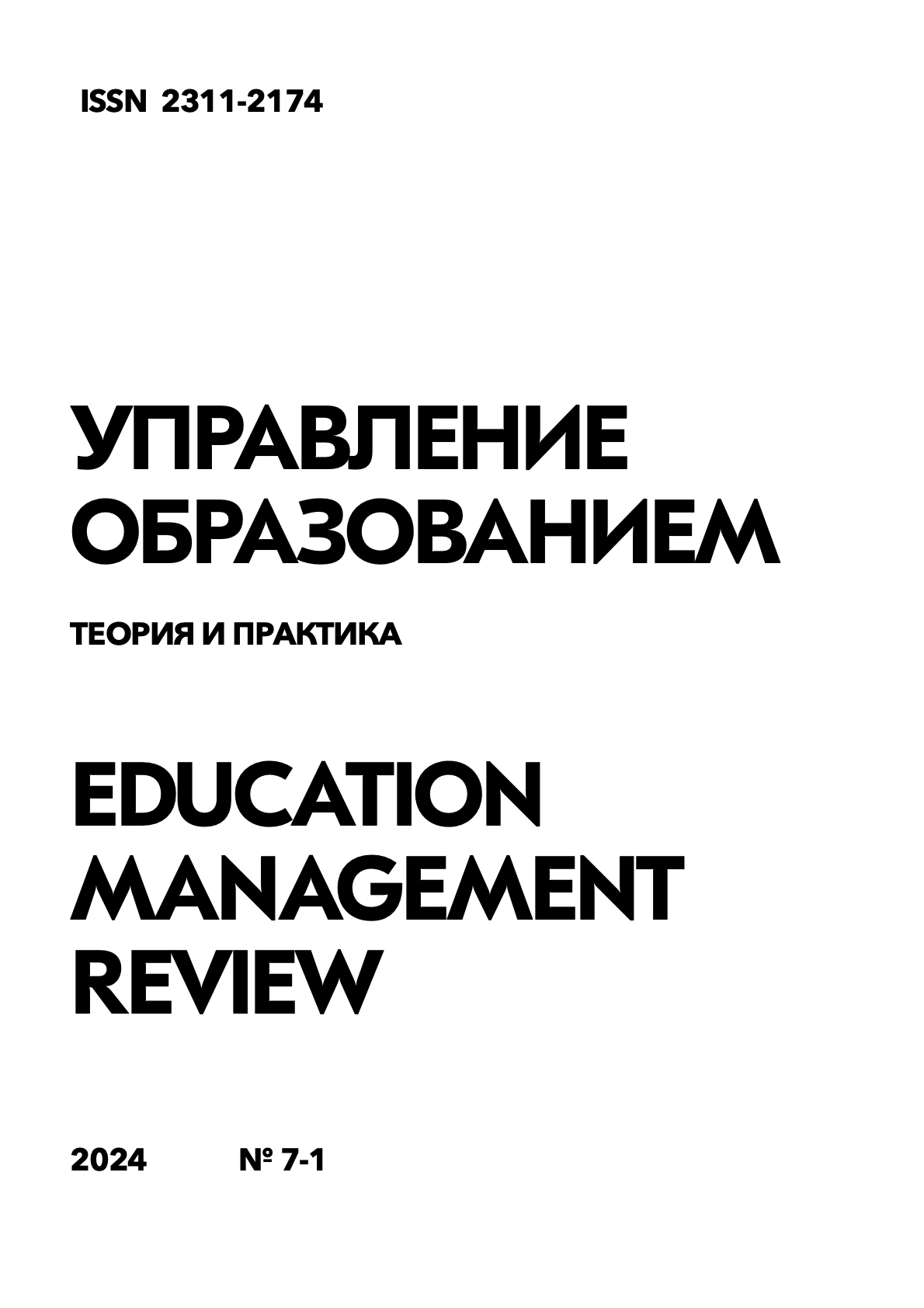Economic efficiency of the introduction of digital educational platforms in universities: implementation experience and development prospects
Keywords:
digital educational platforms, economic efficiency, higher education, cost optimization, university competitiveness, personalization of educationAbstract
In the context of the digital transformation of the higher education system, the introduction of digital educational platforms (DSCs) capable of improving the quality and accessibility of educational services while optimizing the costs of the university is of particular importance. However, despite the active development of PSC in recent years, the issues of assessing their economic efficiency remain insufficiently studied. The purpose of the study is to develop a methodology for a comprehensive assessment of the economic efficiency of the introduction of PSC in universities and to test it on the example of leading Russian universities. The study was based on a combination of qualitative and quantitative methods. At the first stage, a systematic review of the literature and a case analysis of the experience of implementing PSC in 15 leading universities were conducted. Further, based on the data obtained, a methodology for evaluating the economic efficiency of a PSC was developed, including a system of indicators and an algorithm for calculating them. At the final stage, the methodology was tested on empirical data from 5 universities using statistical and econometric analysis methods. The proposed methodology allows for a comprehensive assessment of the economic efficiency of the PSC in three key parameters: cost optimization, income increase and ensuring the competitive advantages of the university. Its approbation showed that the introduction of a PSC provides a reduction in unit training costs by 12-18% with an increase in income from educational activities by 8-12%. At the same time, the greatest effect is achieved when integrating PSC with traditional learning formats and implementing personalized educational trajectories. The obtained results make a significant contribution to the development of the theory and practice of digital transformation of higher education. The proposed methodology can become the basis for making management decisions on the implementation and scaling of the PSC. The prospects for further research are related to the validation of the results on a wider sample of universities and the development of predictive models of the economic efficiency of the PSC.
References
Абдрахманова Г.И., Вишневский К.О., Гохберг Л.М. Что такое цифровая экономика? Тренды, компетенции, измерение: докл. к XX Апр. междунар. науч. конф. по проблемам развития экономики и общества (9-12 апр. 2019 г., Москва). Под науч. ред. Л.М. Гохберг. М.: ИД ВШЭ, 2019. 82 с.
Блинов В.И., Дулинов М.В., Есенина Е.Ю., Сергеев И.С. Проект дидактической концепции цифрового профессионального образования и обучения. М.: Перо, 2019. 72 с.
Гончарова А.Р., Иватанова Н.П., Стоянова И.А. Организация экологического контроля как фактор обеспечения устойчивого развития предприятия // Инновации и инвестиции. 2021. № 1. С. 76-79.
Гужова И.В. Маркетинговые инструменты и технологии продвижения образовательных услуг организации высшего образования в условиях цифровой экономики // Вестник Самарского университета. Экономика и управление. 2019. Т. 10. № 2. С. 36-46.
Днепровская Н.В. Оценка готовности российского высшего образования к цифровой экономике // Статистика и экономика. 2018. Т. 15. № 4. С. 16-28.
Игнатова Н.Ю. Образование в цифровую эпоху: монография. Нижний Тагил: НТИ (филиал) УрФУ, 2017. 128 с.
Ковалев М.М., Головенчик Г.Г. Цифровая экономика – шанс для Беларуси: монограф. Минск: ИЦ БГУ, 2018. 327 с.
Кочергин Д.Г., Жернов Е.Е. Опыт цифровизации высшего образования в США // Профессиональное образование в России и за рубежом. 2019. № 2(34). С. 12-23.
Ларионова В.А., Карасик А.А. Цифровая трансформация университетов: заметки о глобальной конференции по технологиям в образовании Edcrunch Ural // Университетское управление: практика и анализ. 2019. Т. 23. № 3. С. 130-135.
Расторгуев С.В., Тян Ю.С. Цифровизация экономики России: тенденции, кадры, платформы, вызовы государству // Мониторинг общественного мнения: Экономические и социальные перемены. 2019. № 5. С. 136-161.
Роберт И.В. Аксиологический подход к развитию образования в условиях цифровой парадигмы // Педагогическая информатика. 2020. № 2. С. 89-113.
Сафуанов Р.М., Лехмус М.Ю., Колганов Е.А. Цифровизация системы образования // Вестник УГНТУ. Наука, образование, экономика. Серия: Экономика. 2019. № 2(28). С. 116-121.
Трудности и перспективы цифровой трансформации образования. Под ред. А.Ю. Уварова, И.Д. Фрумина. М.: ИД ВШЭ, 2019. 343 с.
Bond M., Marín V.I., Dolch C., Bedenlier S., Zawacki-Richter O. Digital transformation in German higher education: student and teacher perceptions and usage of digital media // International journal of educational technology in higher education. 2018. Vol. 15. № 1. Р. 48.
Rodrigues L.S., Pinto A., Caria A. Digital platforms in higher education: mapping student uses and perceptions // Proceedings of INTED2021 Conference. 2021. рр. 3322-3326.
Sailer M., Murböck J., Fischer F. Digital learning in higher education: a systematic review of reviews // Educational Research Review. 2021. Vol. 37. рр. 100-434.
Downloads
Published
How to Cite
Issue
Section
License

This work is licensed under a Creative Commons Attribution-NonCommercial-NoDerivatives 4.0 International License.




